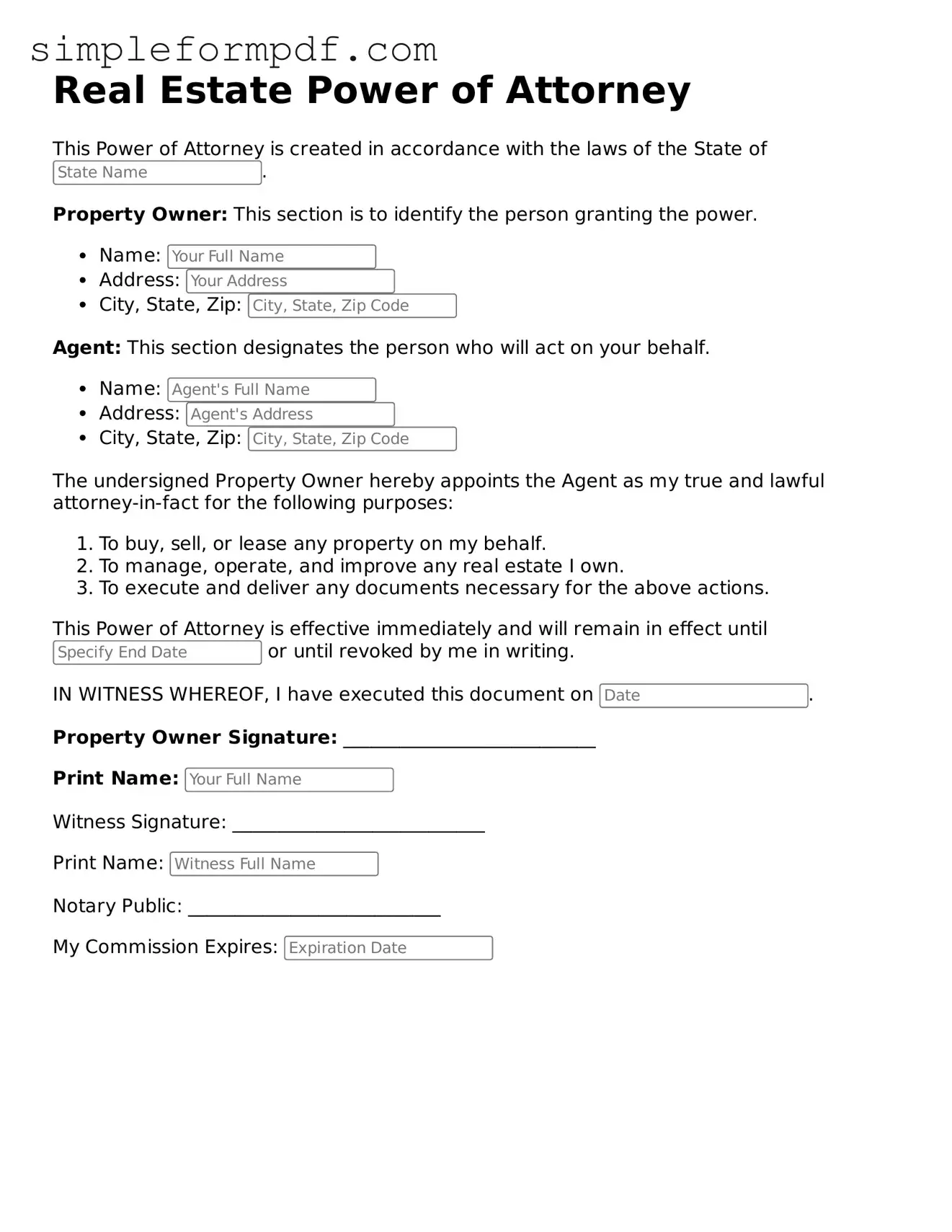Fillable Real Estate Power of Attorney Template
A Real Estate Power of Attorney form is a legal document that allows one person to authorize another to act on their behalf in real estate transactions. This form is essential for individuals who may be unable to manage their property affairs due to various reasons, such as being out of town or having health issues. By granting this power, property owners can ensure that their real estate interests are handled effectively and in accordance with their wishes.
Ready to take control of your real estate transactions? Fill out the form by clicking the button below.
Launch Editor

Fillable Real Estate Power of Attorney Template
Launch Editor
Need instant form completion?
Finish Real Estate Power of Attorney online in just a few minutes.
Launch Editor
or
Download PDF
